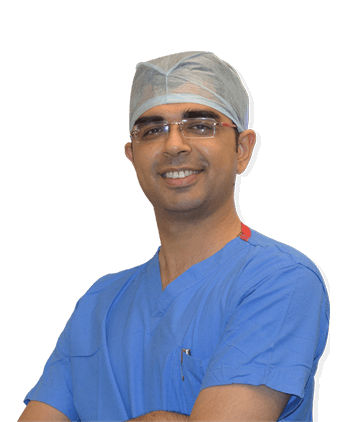What is 24 hr pH Test ?

The esophageal pH test is an outpatient procedure performed to measure the pH or amount of acid that flows into the esophagus from the stomach during a 24-hour period. Esophageal manometry is always a part of 24 hr pH study.
The procedure is commonly used to help confirm the diagnosis of GERD or to identify the cause of various symptoms, including:
- Heartburn, primarily in patients who have had a normal endoscopy and who have failed medical treatment
- Regurgitation of food back to throat
- Patients who are considered as candidates for surgery.
- Uncommon symptoms of GERD (gastroesophageal reflux disease) such as chest pain, chronic cough, asthma, and other throat symptoms.
- The test may also be performed to evaluate the effectiveness of current treatments for heartburn or reflux. This test is often recommended for those whose symptoms aren’t helped by medications.
Why should 24 hr pH study be done?
 Symptoms of GERD or reflux are quite confusing. This means many other condition related to your esophagus, stomach, liver and pancreas can produce similar symptoms. Primarily medications are started on the basis of symptoms alone. But if you do not respond to these medications, or you require it for a very long time or surgery is suggested as an option to prolonged medications, then this study is indicated. It helps us objectively confirm the presence of reflux episodes and also confirm that your symptoms are due to reflux. If not due to reflux, the manometry study done as a part of pH study may diagnose other oesophageal motility disorders which may the cause of your symptoms. Hence if required the direction of your treatment can be changed based on this study.
Symptoms of GERD or reflux are quite confusing. This means many other condition related to your esophagus, stomach, liver and pancreas can produce similar symptoms. Primarily medications are started on the basis of symptoms alone. But if you do not respond to these medications, or you require it for a very long time or surgery is suggested as an option to prolonged medications, then this study is indicated. It helps us objectively confirm the presence of reflux episodes and also confirm that your symptoms are due to reflux. If not due to reflux, the manometry study done as a part of pH study may diagnose other oesophageal motility disorders which may the cause of your symptoms. Hence if required the direction of your treatment can be changed based on this study.
How Is the Esophageal pH Test Performed?
A thin, small tube with a device on the tip that senses acid is gently passed through your nose, down the esophagus, and positioned about two inches above the lower esophageal sphincter. As esophageal manometry is needed to define the exact location of the lower esophageal sphincter, Manometry is mandatory before performing the pH study. The probe is then plugged into a small device worn on your belt or over your shoulder. With the touch of a button on your monitor, it will record the following information:
- The occurrence of symptoms
- The times when you eat and lie down
- The manometry technician will review the monitoring instructions with you.
- Be careful with the device and keep it dry at all times and do not remove the batteries during the study.
hr pH
- Tell your doctor if you are pregnant, have a lung or heart condition or any other diseases, or are allergic to any medications.
- Four to six hours before your appointment do not eat or drink.
- Seven days before the monitoring period, do not take proton pump inhibitors: Ocid or Omez (omeprazole),), Rablet or Rabeloc (rabeprazole), Pan or Pantocid or Pantodac (pantoprazole), Nexium or Nexpro (esomeprazole).
- Two days (48 hours) before the monitoring period, do not take the H2 blockers: Zantac or Rantac (ranitidine).
- Six hours before the monitoring period, do not take antacids (Dygene , Sparacid or Sucralfate).
- There are other drugs that may affect the test results. Talk to your doctor about all medications you are taking before undergoing the procedure.
- Do not discontinue any medication without first consulting with your primary or referring doctor. If proton pump inhibitors need to be discontinued, you will take a week off these drugs before doing the test.
- Please note: Occasionally your doctor may ask you to continue a certain medication during the monitoring period to see if it is effective.
- Activity: Try to follow your usual routine during the esophageal pH test. Many people tend to reduce or change their activities during the monitoring period. However, such changes can affect reflux occurrence and make the results of the monitoring period less useful.Please note: Do not take a bath or shower during the monitoring period to avoid getting the equipment wet.
- Eating: Eat your regular meals at the usual times and eat the way you normally do. If you do not eat during the monitoring period, your stomach will not produce acid as usual, and the test results will not be accurate. Eat foods that tend to increase your symptoms. You may drink as much plain water as you want. As it can interfere with the test result you will be asked to avoid all acidic drinks like fruit juice, fizzy drinks, cordials, alcohol, fruit yoghurt etc during the study period.
- Lying down: Remain upright throughout the day. Do not lie down until you go to bed, unless napping or lying down during the day is part of your normal daily routine.
- Medications: Continue following your doctor’s recommendations regarding which medications to avoid during the esophageal pH test.
- The time when you start eating
- The time when you finish eating
- The time when you start lying down
- The time when you finish lying down


